Summer in the City: The 2022 Summer Classic Film Reading Challenge
It’s about that time, y’all – time to review the books I read for the annual Summer Classic Film Reading Challenge, hosted by Raquel over at the Out of the Past blog. This is my eighth (I think) time participating in this awesome event – I look forward to it every year with uncommon excitement. To join in the challenge, you read six classic film-related books between May and September and write about each one.
As has happened a few times (or more) in past years, I approached the September 15th deadline fearing that I might not make it – ever since I retired last June, I’ve often found myself busier with various projects than I was when I was working! But after doing a bit of juggling of my original choices, I managed to pull it out. You can’t imagine my relief when I turned the final page on the final book! So, here goes – my thoughts on the six books I read for the 2022 Summer Classic Film Reading Challenge.
Backwards & In Heels (2018) by Alicia Malone
This is the second book I’ve read by Alicia Malone, who is one of the hosts on the Turner Classic Movies (TCM) network. I purchased it before I’d even finished the first one, Girls on Film, which I reviewed here. After reading Girls on Film, which I greatly enjoyed, I had high hopes for Backwards & In Heels, and those hopes were justified.
The book, subtitled “The Past, Present and Future of Women Working in Film,” was quite the eye opener. Focusing on women in the motion picture industry, it was absolutely fascinating, and I learned so much. The first section of the book, “The Past,” consisted of six chapters, from The First Pioneers to Modern Hollywood. This was the section I enjoyed the most, as it contained personal and professional histories on such notables as Alice Guy Blache, one of the first directors in history; Lois Weber, the first female director to make a feature film in the United States; Mary Pickford, who joined with D.W. Griffith, Douglas Fairbanks, Sr., and Charlie Chaplin to form the first star-driven production company, the United Artists Corporation; Margaret Booth, the first film editor; and action hero Helen Holmes.
The most impactful part of the book for me, though, was the section on “The Present,” which revealed to me the importance and value of having women behind the camera and in decision-making positions. This is something that I’d frankly never thought about before – I certainly never was aware of how few women, historically, had these positions, nor what kind of affect their lack of presence has on the entire motion picture industry. Malone provided information on numerous executives including Sherry Lansing, former CEO at Paramount Pictures, and Dawn Steel, who headed up Columbia Pictures in the 1980s, and filmmakers like director/producer/writer Ava DuVernay, who created ARRAY, an independent distribution company designed to produce, distribute, and amplify work from women and filmmakers of color. I was most interested in the section on actress Geena Davis, best known for her roles in films like Thelma and Louise and A League of Their Own. Noticing a lack of female representation in television shows and movies, Davis sponsored the largest study ever conducted on gender depictions in children’s movies and TV. Eventually, her work led to the establishment of the Geena Davis Institute on Gender in Media, which was acknowledged at the recent Emmy Awards ceremony.
I can’t recommend this book enough – both interesting and informative, it has served to illuminate a significant facet of the entertainment industry and forever heighten my awareness about this important subject.
Toys in the Attic (1959) by Lillian Hellman
Earlier this summer, I tweeted about the June 20th birthday of playwright Lillian Hellman, stating that several of her plays had been made into feature films, including Watch on the Rhine, The Children’s Hour, and one of my favorite movies, The Little Foxes. One of the comments I received mentioned another Hellman play that was made into a movie: Toys in the Attic, starring Geraldine Page, Dean Martin, and Wendy Hiller. I’d never heard of this film, and the commenter’s reference to one of Hellman’s “nasty” characters in Toys in the Attic made me eager to check it out. Luckily, it was accessible online and after watching it, I was determined to read the play.
Set in New Orleans, Toys in the Attic focuses on three siblings: two spinster sisters – Anna and Carrie – and their ne’er-do-well baby brother, Julian. Julian is married to the much-younger, very wealthy Lily, and the film’s action begins when Julian and Lily return to New Orleans from Chicago – Julian laden with extravagant gifts for his sisters and flashing a wad of cash that he vaguely claims to have gained through a business deal. The lives of the players are intricately intertwined – Carrie has a more-than-sisterly attraction to her brother; Lily fears that Julian married her for her money and, worse, that he’s still involved with his ex-lover; and Lily’s mother Albertine is having an affair with her black chauffeur – who is related to Julian’s ex-lover. It’s quite a tangled web.
I enjoyed the play just as much as I did the film – Hellman did a superb job bringing the characters to life, particularly Albertine, who certainly will never qualify for Mother of the Year, and Carrie, who is perfectly awful in practically every way. Interestingly, the film added some dramatic content in the final scenes that was not in the play, and I must say that it was an improvement. If I hadn’t seen the movie, I certainly wouldn’t have felt that the play’s ending was lacking, but there’s no doubt that, in comparing the two, the end of the film was undoubtedly more satisfying.
Mike Nichols: A Life (2021) by Mark Harris
This was one of the best (if not THE best) biographies I’ve ever read. It took me a long time to get through (which is why I nearly missed the September 15th challenge deadline!), but that’s only because it was almost 600 pages, and certainly not because it was hard to read. From the very beginning, it grabbed my interest and kept a vise-like grip – when I wasn’t reading it, I was thinking about it, and I couldn’t wait to get back to it. I don’t want to oversell it, but this was one good bio, y’all.
Nichols first gained fame as part of an enormously popular comedy team, Nichols and May – the “May” was Elaine May, who Nichols met in the 1950s while both were students at the University of Chicago. Later, though, Nichols far eclipsed this renown as a director of stage and screen – he won nine Tony awards (eight for directing, one for producing), and he was nominated for five Oscars, winning one. Some of the stage productions he helmed included The Odd Couple, Death of a Salesman, Barefoot in the Park and Spamalot, and The Graduate, Carnal Knowledge, Silkwood, Who’s Afraid of Virginia Woolf, The Birdcage, Working Girl, and Closer on the big screen. Nichols’s life certainly wasn’t all stellar productions and accolades, though, and Harris doesn’t shy away from showing us every aspect of this talented and complex man.
In addition to delving into Nichols’s private life, Harris does a superb job with providing access into Nichols’s directing process – it was fascinating and gave me an understanding and appreciation for directing that I never had before. And there’s so, so much more that I learned – like, Nichols had a practice of releasing performers from a production if he didn’t feel they were working out; Gene Hackman, for example, was fired from his role as Mr. Robinson in The Graduate. And after enduring unpleasant (and that’s putting it mildly) working conditions with Walter Matthau and George C. Scott, Nichols introduced a “no assholes” rule. And Nichols directed the pilot episode for the popular ABC television series Family, as well as Whoopi Goldberg’s one-woman show on Broadway. And Nichols’s friend, writer Nora Ephron, was married to Carl Bernstein (who teamed with fellow Washington Post reporter Bob Woodward to investigate the Watergate incident) and wrote a novel about their relationship, which was made into the movie Heartburn, which Nichols directed. (Whew!)
I could go on and on and on, but I have stlll three more books to cover in this post! Let me just say this: the book ends with Mike Nichols’s death, and I actually cried. I mean, like, SOBBED. It was as if I were experiencing the death of someone I knew – and that was because, after reading this bio, I felt like I did.
Dangerous Men (2002) by Mick LaSalle
I have had Dangerous Men in my personal library since June 17, 2003. This is why I love participating in this challenge every year – who knows how long it would have sat gathering dust on my bookshelf!
Dangerous Men looks at actors from the pre-Code era, and serves as the companion to LaSalle’s earlier book, Complicated Women, which covered pre-Code actresses. He starts his discussion by focusing on the silent era, examining the high energy, youthful optimism and romance (“Why are these men smiling?” he asks) that typified many of these films, and spotlighting actors including Lon Chaney, Douglas Fairbanks, Sr, and Rudolph Valentino. From this era, LaSalle transitions into the pre-Code years, deftly weaving biographical information about the pre-Code actors with information about the films and the characters the actors portrayed. In addition to such famed pre-Code performers as Clark Gable, Spencer Tracy, Edward G. Robinson and James Cagney, the author also discusses lesser-known actors including Norman Foster, George Arliss, George Bancroft, David Manners, and Frankie Darro.
Most interestingly, LaSalle devotes an entire chapter to Richard Barthelmess, who he describes as both “low-key and unassuming” and “one of the most exciting figures of the era.” For my money, Barthelmess was not one of the pre-Code era’s more talented or interesting actors, but I was fascinated by the fact that his studio contract allowed him to select his own films and the majority of these productions focused on the depiction of social injustice, from racism to poverty, and from government and police corruption to the futility of war.
I’ve always been far more captivated by the women of pre-Code than the men, but LaSalle’s book has piqued my interest in these gents (especially Barthelmess!) and resulted in my adding more than 50 movies to my watchlist.
Sorry, Wrong Number (1948) by Allan Ullman and Lucille Fletcher
I’ve always understood that the film Sorry, Wrong Number, starring Barbara Stanwyck and Burt Lancaster, was based on a radio play written in 1943 by Lucille Fletcher. What I didn’t know, until I selected this book from my library shelf, was that the radio play was novelized in 1948 by Fletcher and Allan Ullman.
The novel takes place entirely inside the bedroom of the main character, Leona Cotterell Stevenson, a self-centered heiress whose indulgent father, willful nature, and tendency toward hysteria whenever she’s crossed have manifested in a medical condition that keeps her confined to her bed. One night, while trying to reach her husband, Henry, Leona overhears a telephone conversation between two men discussing the details of a woman’s murder, which is scheduled to take place within two hours. With her bedside telephone her only connection with the world, Leona proceeds to engage in a series of calls that gradually reveal to her a universe of theft, deception, and personal danger.
Of course, I knew the story, having seen the film numerous times, but that fact didn’t spoil my immense enjoyment of this novel. It was written in a “real time” format, with each chapter a different time, beginning at 9:30 pm, which added to the tension and suspense. I don’t know if you know the plot and all the goings-on, but let me just say that the final chapter of the book was titled 11:16 pm – followed by the words “The End.” It was chillingly effective, let me tell you.
Suddenly Last Summer (1958) by Tennessee Williams
This was the second play I read this summer; it was made into the 1959 film starring Katharine Hepburn, Elizabeth Taylor, and Montgomery Clift. I’ve only seen the film once (which was more than enough for me, thank you), on the big screen, many years ago. Set in the late 1930s, Suddenly Last Summer centers on Mrs. Venable, who has summoned a doctor from Chicago – Dr. Cukrowicz – to her mansion in New Orleans. She wants the doctor to perform a lobotomy on her niece-by-marriage, Catherine, because the young woman persists on maintaining and repeating a most unsavory tale about the death of Mrs. Venable’s beloved (and I do mean beloved) son, Sebastian, which Mrs. Venable refuses to believe.
It turns out that Mrs. Venable and Sebastian had taken trips together each summer for many years (“We weren’t mother and son, but Violet and Sebastian,” Mrs. Venable explains), but in the previous summer, Mrs. Venable suffered a stroke and Sebastian traveled with Catherine instead. It was during that trip, while in a place called Cabeza de Lobo, that Sebastian died. Refusing to believe Catherine’s version of the events, Mrs. Venable has had her placed in an asylum, but she now wants to go the extra mile and have Catherine silenced for good, to stop her incessant “babbling.” Before the operation is performed, however, Mrs. Venable has Catherine brought to her home for a face-to-face confrontation about Sebastian’s death, where Dr. Cukrowicz administers a truth serum to ensure the veracity of Catherine’s story.
This play is laden with themes of homosexuality, incest, pedophilia, and cannibalism (yes) – it’s a bizarre tale that I didn’t quite grasp or appreciate on the silver screen and, frankly, didn’t much care for after having read the play. I was primarily thrown by the cannibalism aspect which, I suppose, is symbolic of something or another – I don’t know. I’m not that deep. But suffice to say that while I’m glad I finally read the play, it wasn’t exactly a pleasant experience.
And that’s my six, y’all! If you’ve gotten this far, thank you for sticking with this massive post, and I hope that you’ve found some books here that you’d like to check out for yourself. Until next year . . .









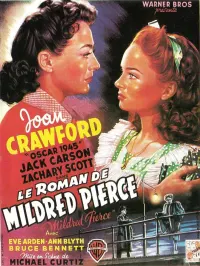




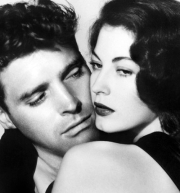
















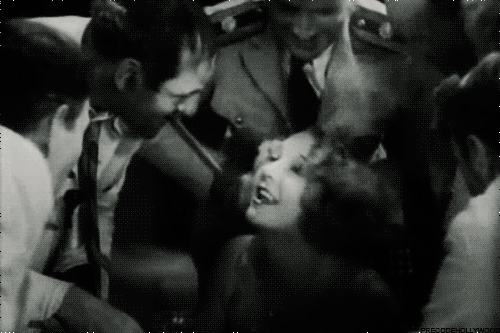


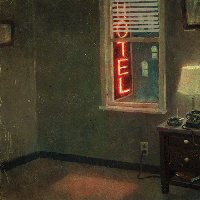
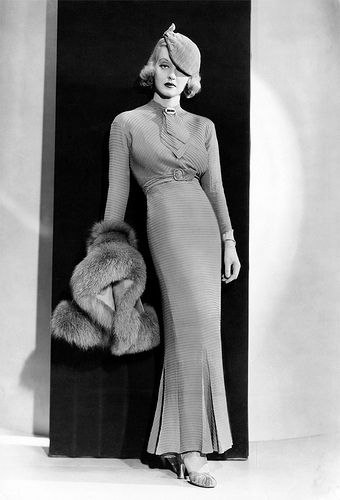



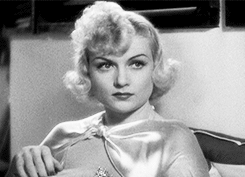
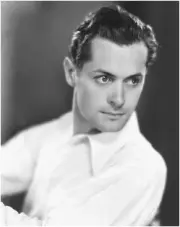
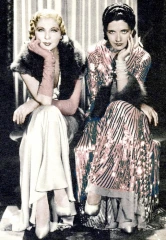

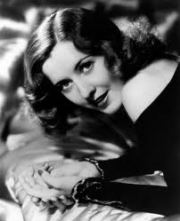



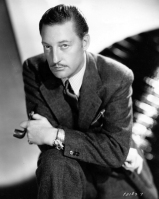




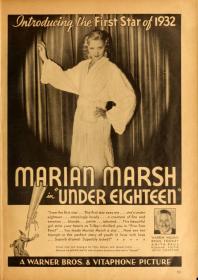
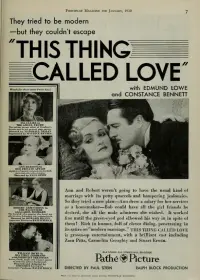

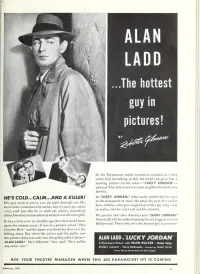
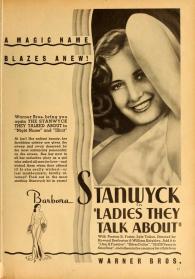

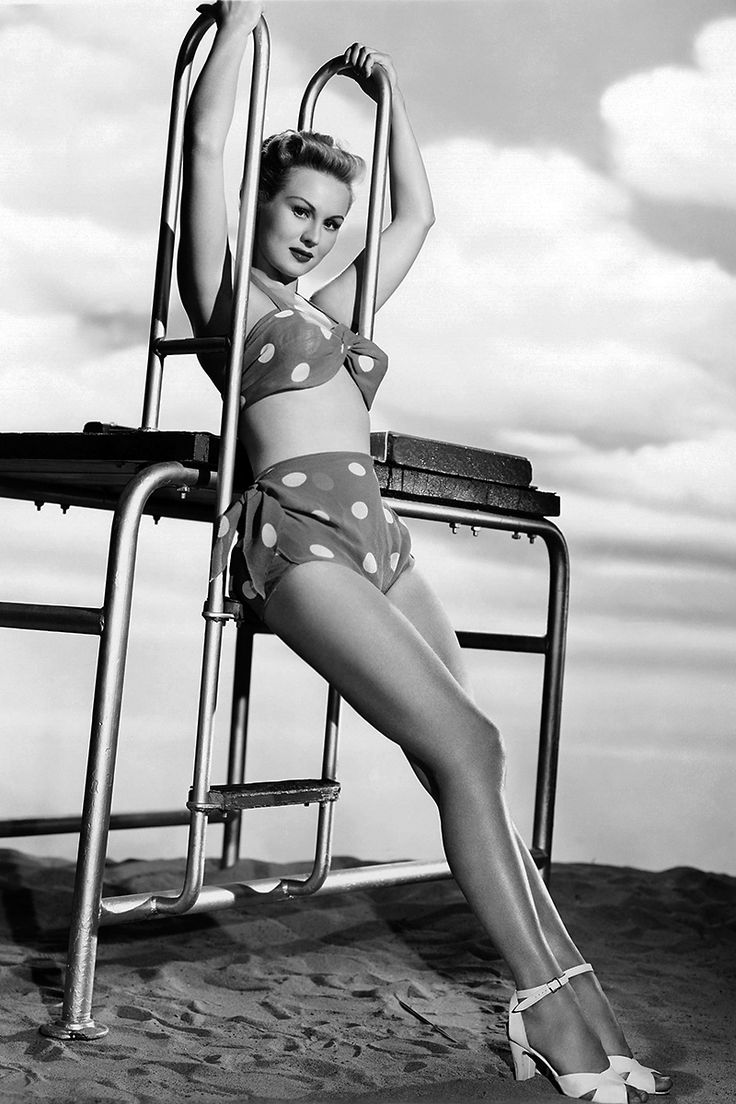



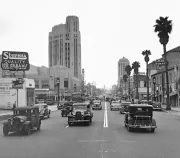
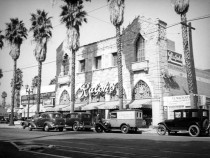


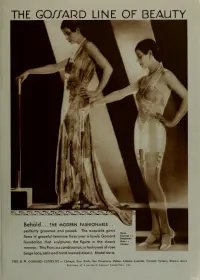

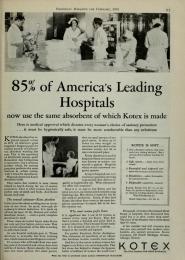

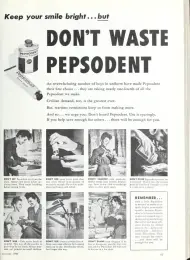


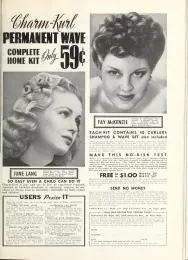


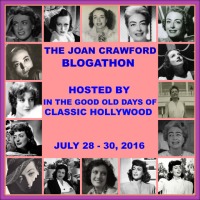


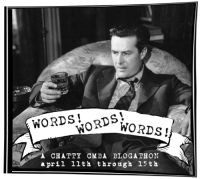

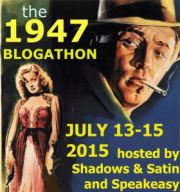
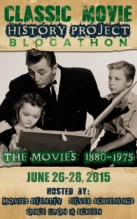
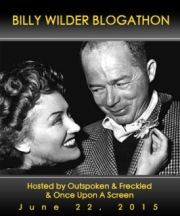


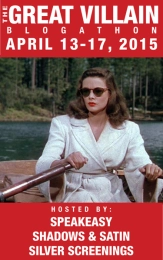


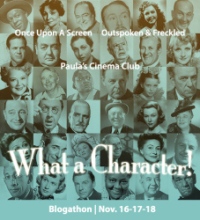
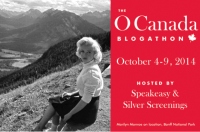


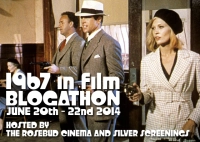


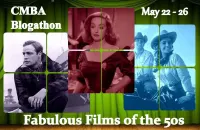
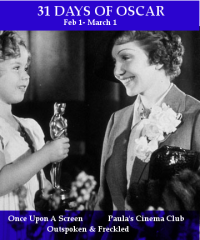
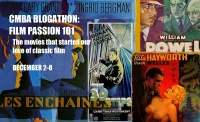







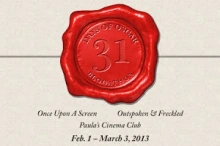

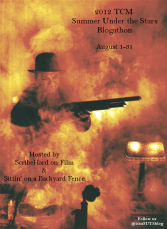


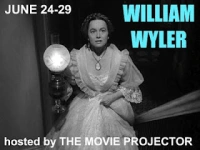





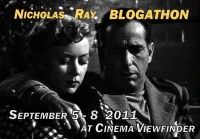

Excellent… as usual, but still… excellent reviews! I now wish to read all these books myself and that— is saying something. thank you!
Thank you so much, Russ – your comment made my whole day!
Karen, your review convinced me I need to read BACKWARDS AND IN HEELS! I loved GIRLS ON FILM. The Mike Nichols bio sounds interesting also.
The only one of your six books I’ve read was DANGEROUS MEN, but it’s been a number of years and I should revisit it, along with COMPLICATED WOMEN. I’ve seen so many more of the movies than when I first read these books, I think I would get a lot out of a reread.
Thanks for a great review roundup!
Best wishes,
Laura
I was just going to write about Dangerous Men and its companion piece Complicated Women too. Love both books.
Suddenly Last Summer is, erm, weird, to say the least. Not a book I’d particularly like to revisit.
To my shame I have to admit that Mike Nichols is unknown to me. I should check the book out.
It’s funny about Suddenly Last Summer — the movie has so many glowing reviews on IMDb, but it just leaves me cold. In numerous ways. I hope you’ll check out the Mike Nichols book — reading it has made me want to check out so many of his films that I’ve never seen, and re-watching those that I have to pay closer attention to the direction. One thing I didn’t mention in my review — he was married to Diane Sawyer!
Thank you, Laura — I hope you enjoy Backwards and in Heels as much as I did. And your comment makes me want to re-read Complicated Women!
I didn’t realize that “Suddenly Last Summer” had been turned into a novel.
Your picks look like fascinating reads, every last one of them. The Dangerous Men book just shot to the top of my Must Read List!
Hi, Ruth! Suddenly Last Summer isn’t a novel — it’s a play. It’s just Sorry, Wrong Number that was novelized. I hope you enjoy Dangerous Men — I know I did. And I’ve already started finding movies on YouTube that are discussed in the book!
Doh! I meant to say Sorry, Wrong Number as novel. I was so excited about all those books I got my wires crossed – just like in the story!
LOL! You slay me. Just like in the story!
Congrats on your retirement and finishing the challenge in the nick of time! I always look forward to your big 6-book reviews. Great job as always! Backwards & In Heels is the only Alicia Malone book I haven’t read yet. Should get to it soon! I have Complicated Women but didn’t realize there is a Dangerous Men! Will check that one out. I have that Mike Nichols book but haven’t tackled it yet. Your review is very high praise! I’m looking forward to it.
Thank you so much, Raquel – it’s always a joy to participate in this great event!